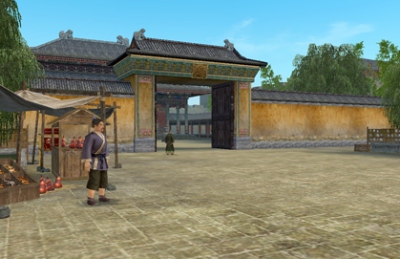Quests
World Map
Memorial Album
Discoveries
-Archive Maps
-Ornaments
Zones Dungeons
-Cities -Port Permits
-Liners -Shipwrecks
Trade goods
Nanban Trade
-Korea
-Japan
-South China
-Taiwan Island
Recipes -Florentine
-Advanced Alchemy
Ships -Ship Parts
-FS -FS Parts
Skills University
-Special Skills
-Languages
-Collection
-Procurement
Professions
Aides
Equipments
 HOME
HOME
World Map
Memorial Album
Discoveries
-Archive Maps
-Ornaments
Zones Dungeons
-Cities -Port Permits
-Liners -Shipwrecks
Trade goods
Nanban Trade
-Korea
-Japan
-South China
-Taiwan Island
Recipes -Florentine
-Advanced Alchemy
Ships -Ship Parts
-FS -FS Parts
Skills University
-Special Skills
-Languages
-Collection
-Procurement
Professions
Aides
Equipments
 HOME
HOME
- City
- Skills
- Discovery
- Location
- Rewards
- Required
 Jakarta Adventurer's Guild
Jakarta Adventurer's Guild 8
8 10
10 8
8
Hangzhou 6
A New Trend in the Arts
No Expiration
Jakarta Adventurer's Guild
Are you familiar with the traditional arts? Down near Hangzhou, they have come up with a ne art that is kind of like a merge of art with foreign art styles. A folkorist has requested we investigate it.
Go to Hangzhou and investigate.
Go to Hangzhou and investigate.
117000
10000










AdmiralAza
- Member
- Language/Edit History
 AdmiralAza
AdmiralAza No.21474 : 예능의 새로운 바람
No.21474 : 예능의 새로운 바람
 AdmiralAza
AdmiralAza No.7078 : A New Trend in the Arts
No.7078 : A New Trend in the Arts

1. Hangzhou - Talk to Tavern Keeper
2. Hangzhou Archives - Talk to Scholar x5
3. Hangzhou - Near the Shopkeeper use
 Observe and
Observe and  Search
SearchReward:
 Peking Opera Costume
Peking Opera Costume Quest Mediation Permit
Quest Mediation PermitAdventure Experience: 800, Adventure Card: 400
Adventure Experience: 170, Adventure Fame: 96

 Chinese Opera
Chinese OperaTraditional arts? I wonder if they are talking about the Chinese opera that's being talked about at the capital. It's supposedly based on the dances and songs of this area. But ever since it has become popular they call it Chinese opera. Ask someone with a good head. Why? Cause they say it started in the Imperial Court.
 Art with a long history
Art with a long historyIf you seek out the origins of this new art that is so popular at the capital, you will eventually come to Bugaku. Bugaku are court songs and music,and have existed since the time of the Three Kingdoms. It's popularity is tied to the rise and fall of the country. It comes in contract with. It's current form first appeared around the Song period.
 Theatre of the Song Period
Theatre of the Song PeriodCrafts among the common folk gained popularity during the Song period, so entertainment gained popularity as a way of relaxing. Towns begin to have small theatres, and Bugaku began to spread throughout the common folk. This form of theatre spread to many lands absorbing local influences and evolving even after the end of the Song period.
 A Dancer's Passion
A Dancer's PassionThat reminds me. A dancer from town here was summoned to the capital. Before she left she said this. 'Our theatre has been reborn as this new Chinese Opera, but it will continue to be refined as it comes in contract with other cultures.'
 Things to Protect, Things that Change
Things to Protect, Things that ChangeArt flows between things you want to keep and things that change. Just like History. That's why we remember old things and need to value them. The dancer agreed with me and donated her costume to the town. She hopes it will encourage those studying the arts.
 To Future Growth
To Future GrowthIf you don't mind, will you accept one of those costumes? Your report will someday influence many cultures. And I hope it will return to us here in this new art form. The costumes are being stored near the Item Shop. The storage box is locked, so be careful.
 The New Art form, Chinese Opera
The New Art form, Chinese OperaThis new art form was born near Hangzhou, but has managed to spread and thrive at the capital. It has a long history, and has evolved numerous times along the way.
A costume used in this new art form is stored near the Item Shop at Hangzhou. I shall include that in my report.
- Discovery
 Peking Opera Costume ★★★★ (Treasure) Exp:800 Fame:330
Peking Opera Costume ★★★★ (Treasure) Exp:800 Fame:330
Costume worn in the Chinese performing art called Peking Opera. The play developed among the people and became popular in the city, where it came to be called, Peking Opera. Subject mattered revolved around the Romance of the Three Kingdoms, Water Margin, and other subjects popular among the masses.
- Location
 Hangzhou 6
Hangzhou 6
- Reward
 Peking Opera Costume 1 0
Peking Opera Costume 1 0
Please log in or register to reply.
 Mobile
Mobile Korean
Korean Japanese
Japanese Taiwanese
Taiwanese English
English Duoer
Duoer Anonymous
Anonymous